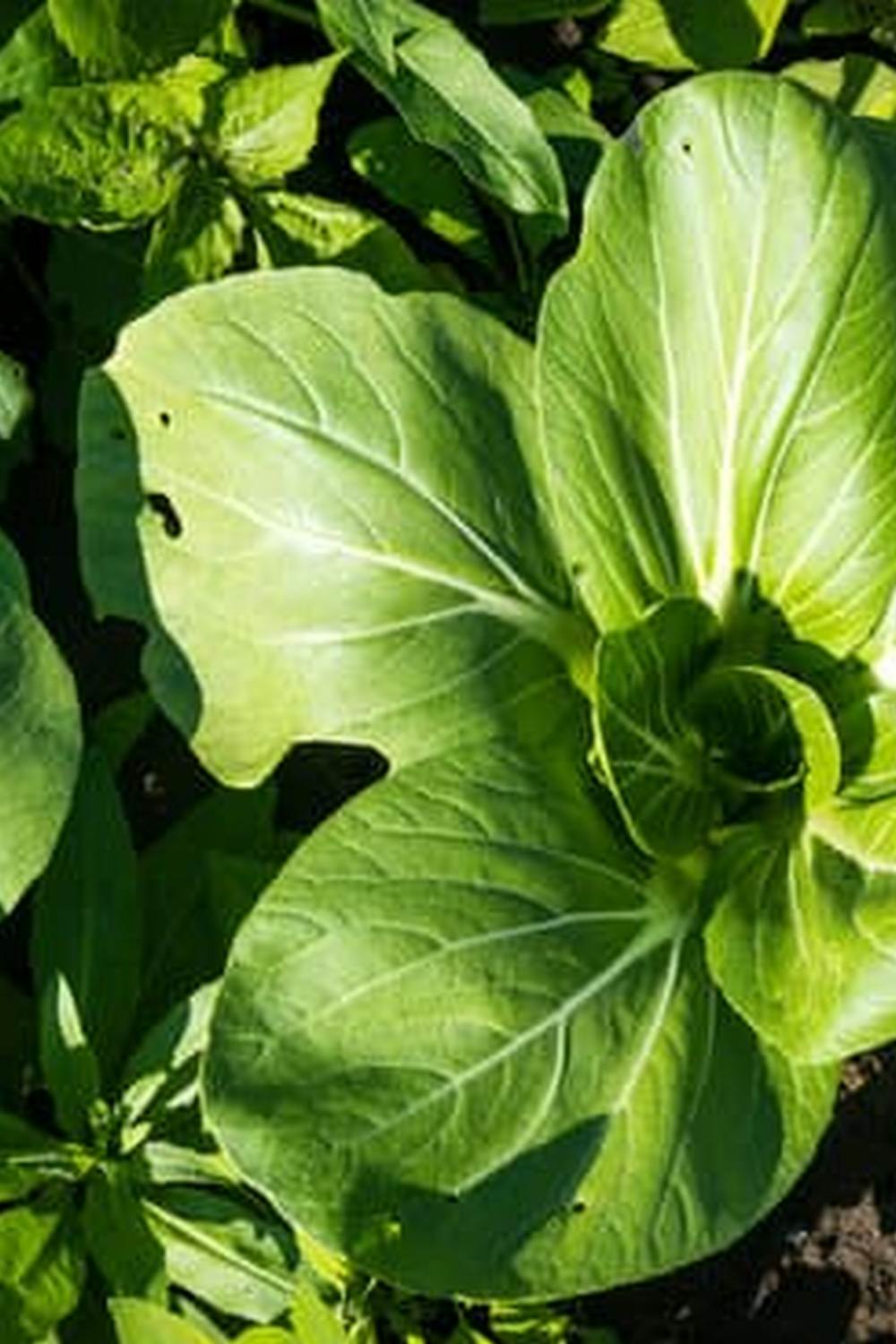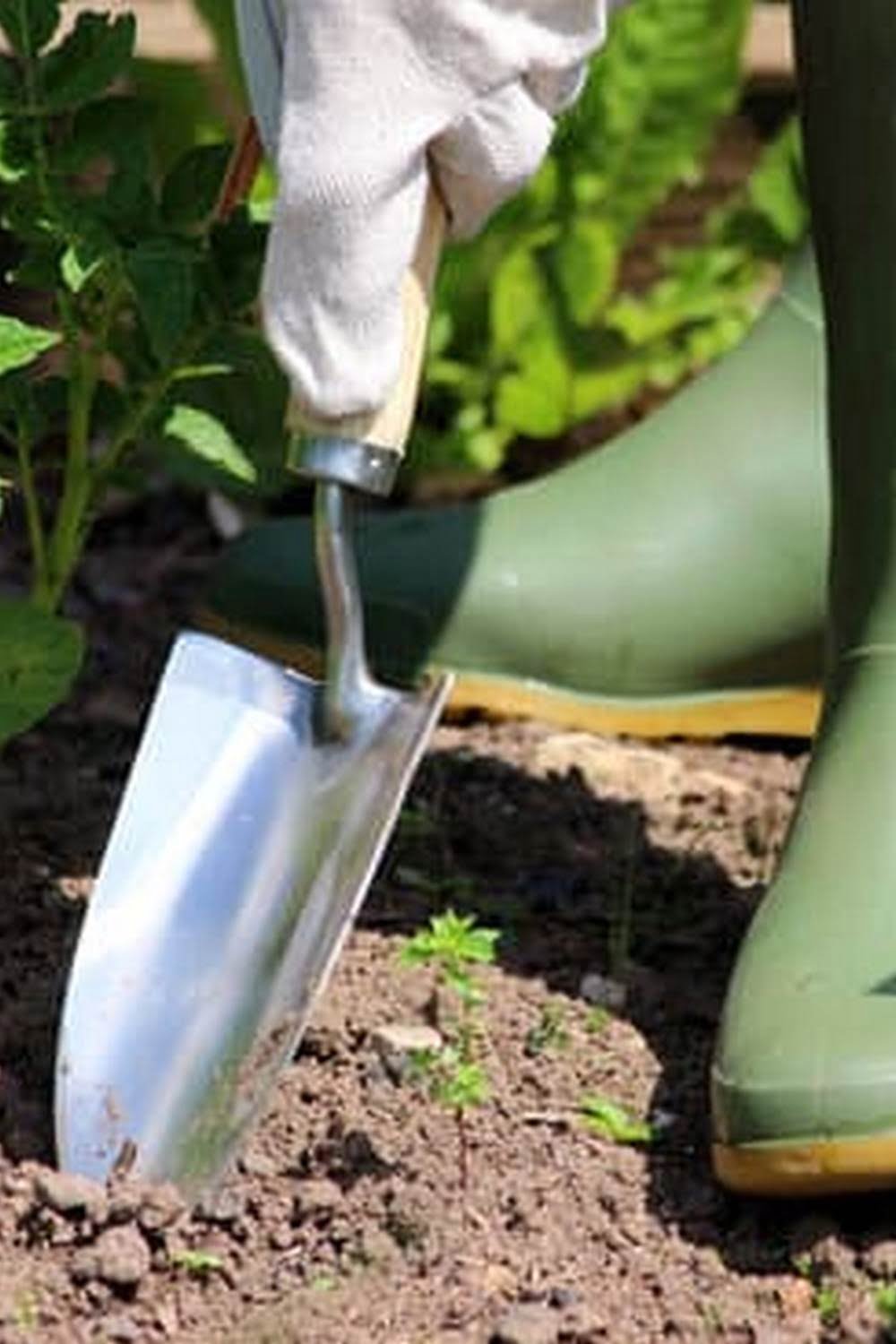Are you looking to improve nitrogen in your vegetable gardens? Nitrogen is a key nutrient for the growth and development of vegetable plants, playing a crucial role in their overall health and productivity. In this article, we will delve into various methods for effectively increasing nitrogen levels in your garden, from choosing the right fertilizers to implementing organic techniques and utilizing nitrogen-fixing plants.
Nitrogen is essential for the formation of amino acids, proteins, and chlorophyll, all of which are vital components for plant growth. Understanding the role of nitrogen in vegetable plants is crucial for maintaining healthy and thriving garden produce. Without sufficient nitrogen, plants may display signs of deficiency and struggle to reach their full potential.
In this comprehensive guide, we will explore the signs of nitrogen deficiency in vegetable plants and discuss the importance of choosing the right nitrogen-focused fertilizers. Additionally, we will cover organic methods for increasing nitrogen levels in the garden, including crop rotation, cover cropping, composting techniques, and utilizing nitrogen-fixing plants. With these valuable tips and insights on properly applying nitrogen to vegetable plants, you can ensure that your garden flourishes with ample nutrient supply.
Signs of Nitrogen Deficiency in Vegetable Plants
Nitrogen is a crucial nutrient for the growth and development of vegetable plants. Understanding the signs of nitrogen deficiency is essential for maintaining healthy and productive gardens. One of the most common signs of nitrogen deficiency in vegetable plants is stunted growth, where the plants may appear smaller than usual and have underdeveloped leaves. Additionally, the leaves may turn pale green or yellow, especially in older leaves, as nitrogen deficiency affects the plant’s ability to produce chlorophyll.
It’s important to choose the right nitrogen-focused fertilizers to address any deficiencies in vegetable gardens. Look for fertilizers with a high percentage of nitrogen, such as those labeled with an N-P-K ratio where nitrogen (N) is the first number. Consider using organic methods to increase nitrogen levels in the garden, such as incorporating organic matter like compost or manure into the soil.
Another effective method to improve nitrogen in vegetable gardens is through crop rotation and cover cropping. By rotating different types of crops each season, you can help restore nitrogen levels in the soil naturally. Additionally, planting cover crops like legumes can aid in fixing atmospheric nitrogen into the soil, which benefits subsequent vegetable plantings.
To effectively improve nitrogen levels in your vegetable garden, it’s crucial to monitor soil health and nutrient levels over time. Conduct regular soil tests to assess nitrogen levels and make adjustments accordingly. By incorporating these methods for increasing nitrogen in vegetable gardens, you can ensure optimal growth and yield from your crops.
| Vegetable Growth Sign | Nitrogen Deficiency Symptom |
|---|---|
| Stunted Growth | Plants appear smaller with underdeveloped leaves |
| Pale Green or Yellow Leaves | Deficiency affects chlorophyll production, causing discoloration |
Choosing the Right Nitrogen-Focused Fertilizers
When it comes to choosing the right nitrogen-focused fertilizers for your vegetable garden, there are a few key factors to consider. Nitrogen is essential for plant growth and development, so selecting the appropriate fertilizer is crucial for the health and productivity of your vegetables.
Types of Nitrogen-Focused Fertilizers
There are various types of nitrogen-focused fertilizers available on the market, each with its unique characteristics and benefits. Some common options include synthetic fertilizers such as ammonium nitrate, urea, and ammonium sulfate, as well as organic fertilizers like blood meal, fish emulsion, and alfalfa meal. Understanding the differences between these types of fertilizers can help you make an informed decision when choosing the best option for your vegetable garden.
Considerations for Application
It’s important to consider the specific needs of your vegetable plants when selecting a nitrogen-focused fertilizer. Different vegetables have different requirements when it comes to nitrogen levels, so it’s essential to choose a fertilizer that aligns with the needs of your crop. Additionally, factors such as application method, timing, and frequency should also be taken into account to ensure optimal results.
Environmental Impact
When deciding on a nitrogen-focused fertilizer for your vegetable garden, it’s crucial to consider its potential environmental impact. Some synthetic fertilizers can contribute to water pollution and other environmental concerns if not used responsibly. On the other hand, organic fertilizers are often more environmentally friendly and sustainable options. Considering the environmental impact of the fertilizer you choose can help you make a more eco-conscious decision for your garden.
Organic Methods for Increasing Nitrogen Levels in the Garden
When it comes to improving nitrogen in vegetable gardens, organic methods are not only effective but also environmentally friendly. One of the most popular and widely used organic methods is using compost.
Composting not only adds valuable nutrients to the soil, including nitrogen, but also helps improve soil structure and moisture retention. This can be done by creating a compost pile with a mixture of green and brown materials such as fruit and vegetable scraps, grass clippings, leaves, and coffee grounds.
Another organic method for increasing nitrogen levels in the garden is through the use of cover crops. Leguminous cover crops like clover and peas have the ability to fix atmospheric nitrogen into the soil through a symbiotic relationship with nitrogen-fixing bacteria. These cover crops can be planted during periods when the garden is not in use. Once they are incorporated back into the soil, they release the stored nitrogen, making it available for other plants.
Furthermore, adding organic mulch to your garden can help improve nitrogen levels over time. As the mulch breaks down, it releases nutrients, including nitrogen, into the soil. Materials such as straw, wood chips, grass clippings or leaves can all be used as mulch to feed your vegetables with much-needed nitrogen.
| Organic Method | Effectiveness |
|---|---|
| Composting | Highly effective at improving soil nitrogen levels |
| Cover Crops | Significantly increases available nitrogen in the soil |
| Organic Mulch | Gradually enhances nitrogen levels over time |
Crop Rotation and Cover Cropping to Improve Nitrogen
Crop rotation and cover cropping are sustainable and natural methods for improving nitrogen levels in vegetable gardens. By strategically rotating crops and incorporating cover crops, gardeners can enhance the fertility of the soil and ensure healthy plant growth. Here are some key strategies to consider:
- Rotate nitrogen-fixing plants: Legumes such as peas, beans, and clover have the ability to fix nitrogen in the soil, making them an excellent choice for crop rotation. By alternating these nitrogen-fixing plants with other vegetables, you can naturally improve the nitrogen content in the soil.
- Utilize cover crops: Planting cover crops like hairy vetch, alfalfa, or winter rye during the off-season can help prevent erosion, suppress weeds, and add organic matter to the soil. These cover crops also have the added benefit of fixing nitrogen from the atmosphere into the soil, ultimately enriching it for future vegetable plantings.
In addition to enhancing nitrogen levels, crop rotation and cover cropping also promote overall soil health and biodiversity. These practices can help minimize pest and disease issues while maintaining a balanced ecosystem within the garden.
By implementing crop rotation and cover cropping techniques, gardeners can significantly improve nitrogen in their vegetable gardens naturally. These methods not only contribute to healthier plants but also support sustainable gardening practices that benefit the environment over time.
Composting Techniques to Boost Nitrogen in the Soil
Composting is an excellent way to naturally increase nitrogen levels in the soil of your vegetable garden. By following these simple techniques, you can create nutrient-rich compost that will improve the overall health and yield of your crops. Here are some effective methods for boosting nitrogen through composting:
1. Use a proper mix of green and brown materials: To create compost high in nitrogen, it’s important to achieve a balanced mix of green (nitrogen-rich) and brown (carbon-rich) materials. Green materials include grass clippings, kitchen scraps, and coffee grounds, while brown materials consist of dry leaves, straw, and wood chips.
2. Incorporate nitrogen-rich additives: Adding high-nitrogen items such as manure or blood meal to your compost pile can significantly increase its nitrogen content. These additives help speed up the decomposition process and result in a more potent source of nitrogen for your vegetable plants.
3. Turn the compost regularly: Aerating your compost pile by turning it regularly will promote decomposition and help release more nitrogen into the soil. This simple step can enhance the overall quality of the compost and ensure that it is rich in nutrients for your vegetable garden.
By implementing these composting techniques, you can effectively boost nitrogen levels in the soil of your vegetable garden, ultimately leading to healthier and more bountiful crops.
Utilizing Nitrogen-Fixing Plants in Vegetable Gardens
One effective method to improve nitrogen in vegetable gardens is by utilizing nitrogen-fixing plants. These plants have the ability to take nitrogen from the air and convert it into a form that can be used by other plants, thus naturally increasing the nitrogen levels in the soil. Legumes, such as peas, beans, and clover, are some of the most common nitrogen-fixing plants that can be incorporated into vegetable gardens.
Incorporating nitrogen-fixing plants into your vegetable garden can be beneficial in multiple ways. Not only do they aid in improving soil fertility by adding nitrogen, but they also help reduce the need for synthetic fertilizers. Additionally, these plants can act as cover crops, providing a natural weed control and preventing soil erosion.
When introducing nitrogen-fixing plants into your vegetable garden, it is important to consider their compatibility with other vegetables in terms of spacing and light requirements. Proper planning and placement of these plants within the garden can help maximize their benefits in improving nitrogen levels while minimizing any potential competition with other crops. Ultimately, utilizing nitrogen-fixing plants offers an organic and sustainable approach to enhancing soil fertility and promoting healthy vegetable growth.
Tips for Properly Applying Nitrogen to Vegetable Plants
Proper application of nitrogen to vegetable plants is crucial for their growth and overall health. It’s important to understand how much nitrogen your specific vegetables need, as well as the best methods for applying it to ensure optimal absorption. Here are some tips for properly applying nitrogen to vegetable plants:
Understanding the Nitrogen Needs of Different Vegetables
Not all vegetables require the same amount of nitrogen. Some, like leafy greens and corn, are heavy feeders and require higher levels of nitrogen, while others, such as root vegetables, need less. It’s essential to research the specific nitrogen needs of the vegetables you are growing to avoid over – or under-applying this nutrient.
Choosing the Right Fertilizer and Application Method
When selecting a fertilizer for your vegetable garden, look for one that is specifically formulated to provide a balanced ratio of nutrients, including nitrogen. Granular fertilizers can be applied directly to the soil before planting or as a top-dressing during the growing season. Liquid fertilizers can be applied directly to the plants’ foliage or through drip irrigation systems for efficient absorption.
Timing Is Key
The timing of nitrogen application is crucial for maximum effectiveness. Applying nitrogen too early in the season may result in leaching and waste, while applying it too late may not provide plants with enough nutrients when they need them most. For most vegetables, it’s best to apply nitrogen fertilizer when they are actively growing and establishing their root systems.
By following these tips for properly applying nitrogen to vegetable plants, you can ensure that your garden thrives with healthy and productive crops while avoiding common issues associated with inadequate or excessive nitrogen levels in the soil. Keep in mind that regular monitoring of plant growth and soil conditions will help you make adjustments as needed to achieve optimal results.
Testing Soil Nitrogen Levels and Monitoring Improvement Over Time
In conclusion, improving nitrogen in vegetable gardens is crucial for successful and abundant harvests. Understanding the importance of nitrogen as a key nutrient for vegetable growth is the first step in achieving this goal. By recognizing the signs of nitrogen deficiency in plants, gardeners can take proactive measures to address any issues before they escalate. One effective way to increase nitrogen levels in the garden is by choosing the right fertilizers specifically designed to boost nitrogen content.
Organic methods such as crop rotation, cover cropping, and composting techniques can also contribute to improving nitrogen in the soil. Additionally, utilizing nitrogen-fixing plants in vegetable gardens can help naturally replenish this essential nutrient. Properly applying nitrogen to vegetable plants and regularly testing soil nitrogen levels are important practices that can ensure ongoing improvement over time.
By implementing these strategies and monitoring the progress of nitrogen improvement in the garden, gardeners can achieve healthier, more robust vegetable plants that produce bountiful yields. Ultimately, taking a proactive approach to improving nitrogen levels will lead to more successful gardening experiences and a greater abundance of homegrown vegetables.
Frequently Asked Questions
How Do I Increase Nitrogen in My Vegetable Garden?
One way to increase nitrogen in your vegetable garden is by adding organic matter like compost, manure, or grass clippings. These materials will decompose over time, releasing nitrogen into the soil for your plants to use.
What Is the Best Source of Nitrogen for a Vegetable Garden?
The best source of nitrogen for a vegetable garden is organic fertilizers such as blood meal, fish emulsion, or alfalfa meal. These products are natural and can provide a steady supply of nitrogen to your garden without harmful chemicals.
How Do I Fix Nitrogen Deficiency in My Garden?
To fix nitrogen deficiency in your garden, you can try planting nitrogen-fixing cover crops like clover or hairy vetch. These plants have the ability to take nitrogen from the air and convert it into a form that can be used by other plants.
Additionally, using organic fertilizers or adding compost to the soil can also help address nitrogen deficiency in your garden.

If you’re looking to get into vegetable gardening, or are just looking for some tips on how to make your current garden better, then you’ve come to the right place! My name is Ethel and I have been gardening for years. In this blog, I’m going to share with you some of my best tips on how to create a successful vegetable garden.





